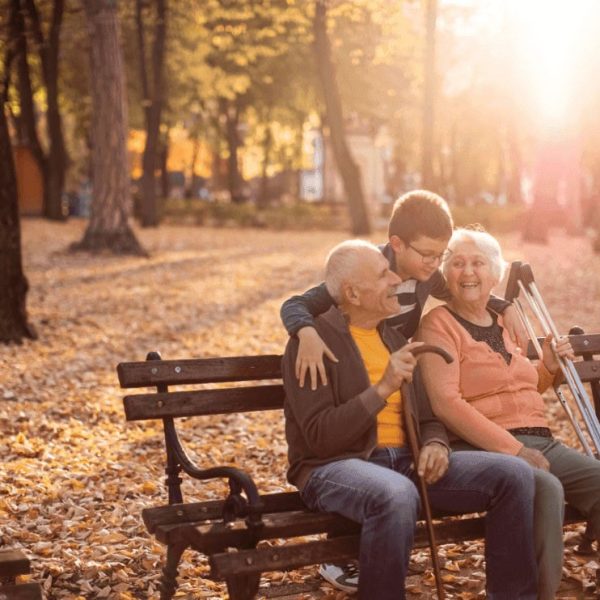
RAI-HC Scale and Assessment of Loss of Autonomy and Mobility in Ontario
Understanding the RAI-HC Scale in the RAI Assessment Process
Every year, many seniors living alone in Canada experience falls, episodes of confusion, or medical emergencies without being able to quickly call for help. In these critical moments, medical alert systems can literally save lives.
But how do you know when such a device becomes necessary? And how can you ensure it matches the real needs of the individual? In Canada (except Quebec), the key tool to guide these decisions is the RAI-HC (Resident Assessment Instrument - Home Care) assessment.
Understanding loss-of-mobility assessment with RAI-HC
RAI-HC is a standardized assessment used across the country by home care services. It covers a wide range of domains:
- Activities of Daily Living (ADLs)
- Mobility and transfers
- Cognition and memory
- Risk behaviors
- Falls, medication, pain, mood, etc.
Generating key scores such as:
- MAPLe score (for prioritizing services)
- ADL Hierarchy Scale (dependency level)
- Cognitive Performance Scale (CPS)
These data help identify at-risk individuals and support preventive interventions such as installing a medical alert system.
To you, caregivers and families:
If you've ever thought, “I hope she's okay...”, or “He could use a little something extra”, then maybe it's time to ask the question: what if a medical alert could make the difference?
Medical alert systems are no longer reserved for “extreme cases”. Today, they are:
- Discreet (watches, pendants, smart bracelets)
- Automated (fall detection without manual support)
- Connected (GPS and two-way voice calls)
Choosing the Right Alert System Based on Needs*
This chart provides a quick reference linking RAI-HC indicators with appropriate medical alert devices. It is intended to support decision-making for caregivers, clinicians, and families.
RAI-HC Indicator / Domain
Recommended Medical Alert Solution
Scale: 0–2 (Independent to Mild Help)
Basic SOS button (pendant/bracelet) for peace of mind
Scale: 3–5 (Moderate to High Help)
Fall detection system with auto-alert feature
Cognitive Performance Scale (CPS): 0–1 (Intact or Borderline)
Standard medical alert with 2-way voice calls
CPS: 2–4 (Mild to Moderate Cognitive Impairment)
GPS-enabled alert with geolocation and two-way voice calls
CPS: 5–6 (Severe Impairment
Passive monitoring sensors (bed/chair exit, no interaction required)
History of Falls / Mobility Issues
Fall + inactivity detectors with wellness check-ins
Social Isolation / Anxiety
Simple wearable alert linked to 24/7 monitoring center
* The information is provided for guidance only and does not constitute any form of diagnosis regarding your state of health or your needs. If in doubt, please consult a healthcare professional.
Real-Life Examples
Ms. Ellen, 82 years old
Lives alone, mobile but with poor balance.
- She received a bracelet with a fall detector. Since then, two alerts have been automatically triggered and sent to a 24/7 connected control center.
- Her daughter is then immediately alerted, and in the event of absence, first responders are notified.
Mr. John, 78 years old
Has moderate cognitive impairment.
- A GPS device with a safety zone was installed.
- His son receives a notification if his father exceeds a defined perimeter.
Integration into Home Care Services
Medical alert systems can be recommended or arranged by care coordinators through the Home and Community Care Support Services.
In some cases, community programs or insurance may cover part or all of the cost. These systems can also be included in a personalized care plan.
SOS-MEDIC can help you!
We offer the following medical alert solutions:
- SOS Home with or without fall detection: bracelet or pendant with button (with or without landline)
- SOS Watch with fall detection: GPS connection with two-way voice calls
- SOS Mobile, panic button with fall detection, GPS connection with two-way voice calls
Key Takeaways
A medical alert is not a sign of weakness - it's a tool for empowerment.
When combined with a RAI-HC assessment, a medical alert system becomes a valuable tool for maintaining safety, autonomy, and peace of mind at home.
Families and family caregivers: talk to your loved ones' caregivers. It's possible to take action before the next emergency.
